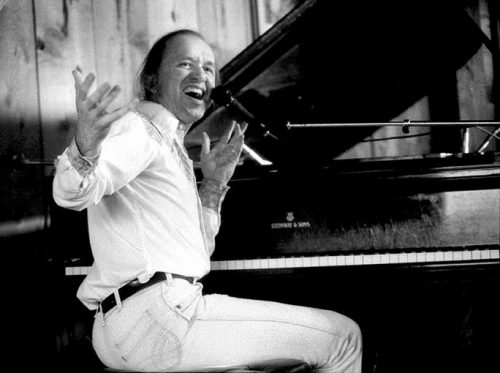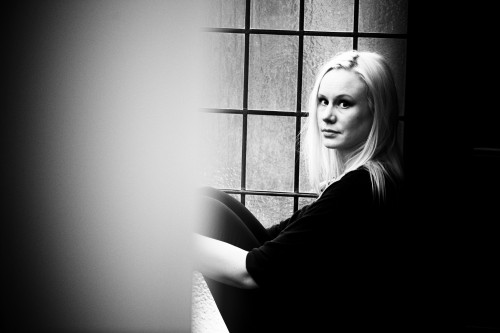By Kieran Loughney
March 31st, 2018, Easter Saturday night at the Deerhead Inn, Delaware Water Gap, Pa. The crowd is hushed, reverent. From my seat at the bar, I see the drink orders have slowed. A spring snow’s stillness settles on the room.
Bob Dorough, tonight’s featured act, has announced he’s got one final number.
On my ride here earlier, I’d been recalling my first exposure to Dorough’s music. I smiled at the thought of a chubby conductor aboard a cartoon train on a Saturday morning in the early ’70s. Grammar guidelines dipped in clever lyrics and a catchy tune that stuck in a kid’s brain like Bazooka bubble gum.
“Conjunction Junction” and songs such as “Three Is the Magic Number,” “My Hero Zero,” “Electricity,” were part of the television series called “Schoolhouse Rock.” Airing among the hijinks of Bugs Bunny, Roadrunner and Daffy Duck, Dorough’s songs aimed for the kid spooning cereal in front of the tube: Dorough spoon fed his young viewers plenty of knowledge, and maybe a bit of wisdom, too.
I’d later learn that Dorough, as a young jazzcat, played shows with Louis Armstrong and in between comedy sets by Lenny Bruce. He composed for Miles Davis, Dizzy Gillespie and Mel Torme, even the beat poet Lawrence Ferlinghetti.
Outside the Deerhead in 2018, spring’s fragrant arrival speaks of a fresh start. But as I enter, the dim light and dark paneling feel more like winter. On another such night here, one could expect the pre-show buzz of friendly chatter and laughs. Tonight, these sounds give way to subdued talk among tablemates.
Dorough’s home is near this historic inn and he’s played gigs here for decades, always insisting that the house keep admission prices low. Steadying himself with a hand on the piano bench, he manages the short stage. Scanning the room from the perch, his eyelids heavy, he smiles. Usually its own warm presence, the once radiant grin is narrower now.
“I want to apologize up front,” he says in his soft Arkansas drawl. “I’m going to do a slightly shorter set tonight, knock off earlier than usual. I’ve been needing more rest lately.”
A glass of porter is set near his piano bench: He’s in a light sweater, brown polyester slacks and mall-walker shoes. The back and sides of his silver hair are pulled into a tight ponytail, revealing the top of his bald head. Dorough nods. His bony fingers are the color of stained ivory. He hits the keys and with his deft backing combo, opens the show with a brisk instrumental piece.
The train’s leaving the station, and everybody is on board.
I’m tapped by another reminiscence. It was a Saturday afternoon in the early nineties, a noisy herd of kids corralled in an elementary school auditorium. I’d brought my preteen son along and he was not pleased to be in a school on a Saturday. Dorough hopped onstage. With his bright grin and brash piano style, wise cracks and wild gestures, he quickly commanded the attention of these unruly half-pints.
Leaning down from the piano bench, he unpacked his bag of clever singalong lessons in math, science, English and history. The kids were thoroughly charmed.
“You kids know the magic number?”
Very soon, kids were belting out multiplication tables – in reverse. They were all aboard the train, singing, clapping, soaking up knowledge and having a blast.
By the set’s end, kids cheered. Dorough beamed.
The Easter Eve set continues at The Deerhead, the crowd intensely focused on the stage. The staff takes care to serve dinner quietly. The music feels warm and sincere, tempos are relaxed, notes caressed and savored like the first fruit of spring. Dorough begins singing now and the crowd is sitting upright. A waitress pauses, looks wistfully at the stage and continues her work.
Dorough originals, the standards and old “Schoolhouse Rock” standbys keep the crowd enthralled, their heads bobbing to familiar rhythms. Dorough belts, murmurs, croons. His voice, once a drowsy lion’s growl rising to a field holler, is more subdued tonight but it is no less expressive.
The rails glisten, the train propelled more by gentle momentum than a chugging engine. As the set continues there are smiles. Some knowing, others rueful, still others joyful, spread across the faces in the room as hearts open to Dorough’s power.
The small combo plays “Conjunction Junction,” the grammar lesson we never knew we’d love.
I recall a gig from the late 1990s, a shady grove in a park on a June afternoon. Dorough played “The Summer Wind” as only he could, every syllable of the lyric given its due, the message always ahead of the messenger. Warm breezes and dappled sunlight suffused that grove and Dorough’s voice, his playing, forever their own source of light and warmth.
At the Deerhead now, Dorough’s doing his song, “Devil May Care.” The bouncy melody can’t obscure the lyric’s deep truth.
“Live, love today
Let come tomorrow what may
Don’t even stop for a sigh
It doesn’t help if you cry
That’s how I’ll live and I’ll die
Devil may care…”
The crowd seems to sigh as one. This crowd, his crowd – friends, fellow musicians and longtime fans have heard the recent news. Dorough’s been fighting hard and his cancer is no longer treatable. He now has fewer days left than we had hoped. Dorough’s storied life creating, educating, inspiring and delighting is reaching its final refrain.
“We’ve got one more for you, then we’ll need to head on home.” Dorough’s taking it easy now, fingers falling gently on the keys. The notes form a familiar tune he’s played here on so many nights.
His singing is softer than ever. I swallow hard, lean in closer. I’m drinking in the melody, poetry, gravity of this moment, not wanting to miss a drop.
“Gonna take a sentimental journey, sentimental journey home…
Like a child in wild anticipation
Longing to hear that all aboard…”
He reaches the chorus and as always, he asks the crowd: “What time do we leave?”
“Seven” comes the hushed response.
Dorough leads the room as we sing the last tender lines.
“Seven, that’s the time we leave, at seven
I’ll be waiting up in heaven
Countin’ every mile of railroad track that takes me back…”
Bob Dorough, 94, has finished his last performance. Never one to allow any distance between performer and audience, he makes sure that we all gently arrive at the station. Together.
Photo by Brian McMillen / brianmcmillen@hotmail.com




Leave a Reply